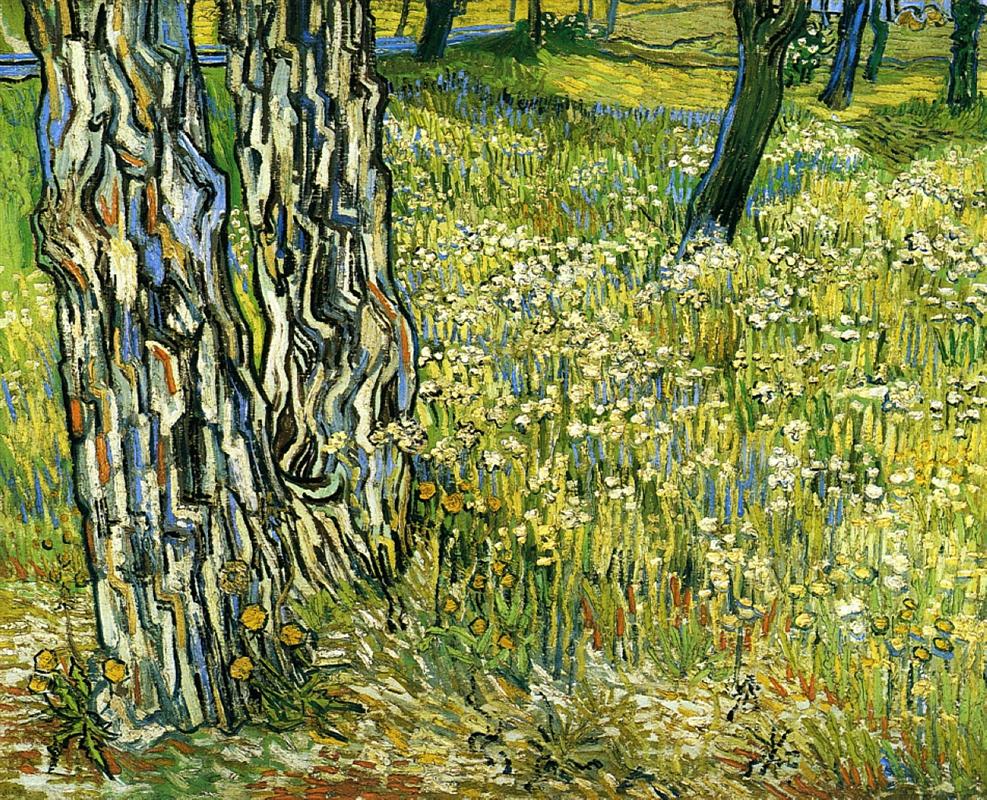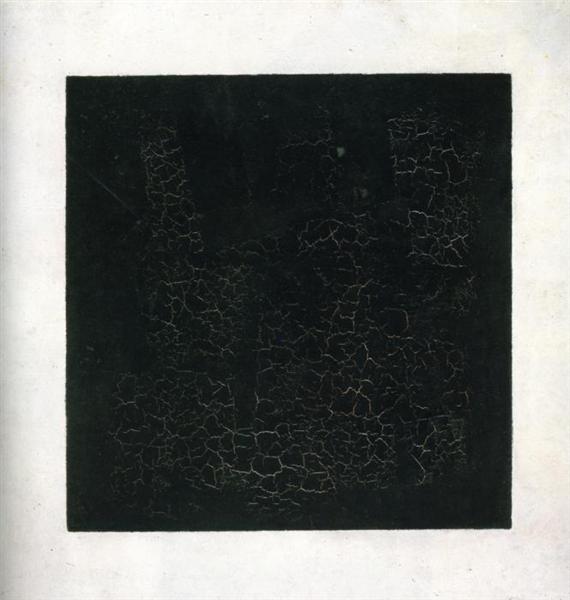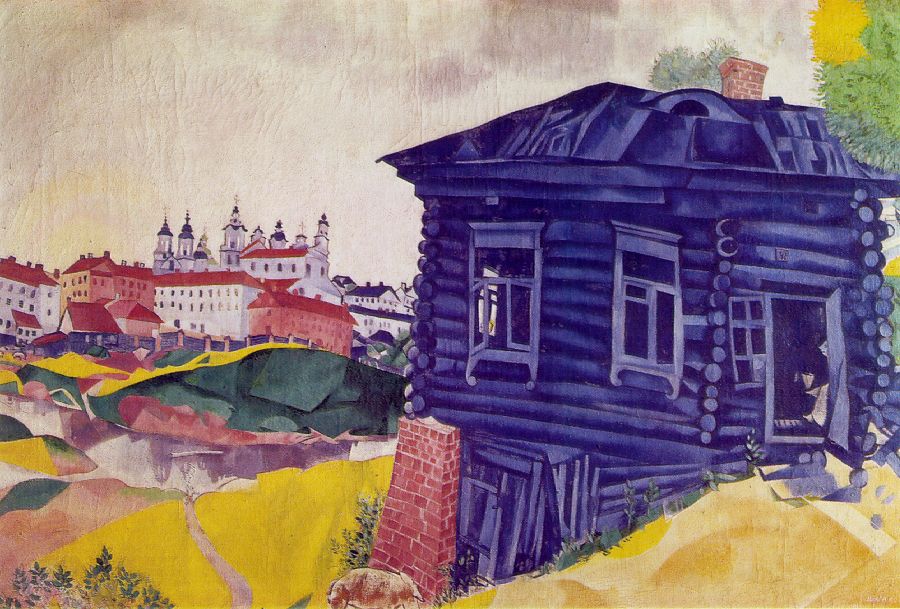The triumph of the mind

This painting was there with me in that long-ago moment that shaped my life for years to come (and is haunting me still):
I am fifteen, standing in front of this reproduction in my childhood room, and making the choice to abandon painting.
For eight years, I have been following two tracks of education, one leading towards an art academy, another, to the university. But here and now, I have to decide.
Back then the Soviet Union still maintained a very old-school approach to art training. You were supposed to have mastered the fundamentals, and have a full portfolio of work to even be considered for entrances exams, let alone for admittance to an art school.
Even after eight years of preliminary training, the only way to achieve that was to dedicate the last two high-school years almost exclusively to painting & drawing, reducing all other subjects to rudimental level — not just effectively closing the university option, but also the very possibility to grow and discipline the mind at the peak of its learning abilities.
What’s the point, I thought looking at van Gogh’s blue tree trunks, when it is so painfully obvious that I could never ever paint anything remotely as powerful and intense?
The sun was setting outside, filling the room with warmth and sadness, as I was coming to terms with this decision to abandon the dream of being an artist. The decision that felt like it had already been made by the triumphant mind.
The dark night of the soul
And thus my life turned away from painting and into the realm of language and linguistics.
If not painting, linguistics was the most obvious choice. Ever since I was a child, having barely acquired my native language, I started wondering how we KNOW that we use words like “red”, “green”, and “blue” to name the SAME colour.
How can we possibly know, I wondered, whether my inner experience of “red” is not another person’s experience of “green” or “blue”? In one way or another, my mind has always been longing for a deeper, clearer connection between colours and words, between painting and language.
The twenty years of linguistic research were both meaningful and, for a time, intellectually rewarding. By my early thirties, my academic career was blossoming — complete with degrees, publications, positions, and other stuff which usually signals the emerging success of an academic career.
But something was definitely off. I grew increasingly disappointed in the state of the field. There seemed to be no light in the end of the tunnel, no grand and shining future, no clear way to any important breakthroughs in understanding the inner workings of languages. Or if there were, I couldn’t see them.
Language IS our primary tool for understanding reality (even if not a very good one), but trying to use it to UNDERSTAND ITSELF reminded me increasing of a puppy chasing its tail. Entertaining, certainly — but ultimately meaningless.
And my dream of painting had never truly died; it was simply blocked, and this block was slowly but relentlessly sucking the joy and wonder out of my life.
So I abandoned my professorial position in Germany, and followed my family to California. And it is here, in this sunny state, that I faced my dark night of the soul.

I remember that night as clearly as I do the sunset in my childhood room twenty years before that. There wasn’t a single flicker of light in that night. I vaguely remembered that I had some good and happy memories, but I couldn’t really pull out any one of them into conscious awareness. Only darkness.
I turned to painting to save me from depression. And it helped.
Day by day, step by step, I was starting to feel alive again. This feeling gave me the resolve and the courage to drop everything else — to reawaken my dream of being an artist..
And for several years there, as I was climbing the steep learning curve towards painting mastery, my life was filled with joy and energy again, as though I were back in my youth.
The urge to comprehend everything
… we most changeable ones who walk about with the urge to comprehend everything and (because we’re unable to grasp it) reduce immensity to the action of our heart, for fear that it might destroy us.
Rainer Maria Rilke “Letters on Cézanne.” (translated by Joel Agee)
But sooner or later I had to face this question:
Does my art practice MATTER at all, beyond my own joy in the painting process, beyond making me feel alive and working as my personal anti-depressant? In short, does it matter beyond my own self?
The current social milieu offers basically three points of encounter between the artist’s work and “real life”: the marketplace (this one is obvious), social & political activism (putting your art in the service of a good cause), and “the art world” (fame, recognition, shows, contribution to the domain, etc.).
I researched them all, and experimented a bit, not without success — but neither seemed satisfactory.
Once again, something was definitely off — or at least that’s how it felt to me.

All over, I saw disruptive disconnects between Art and Life, which went well beyond my own work. I didn’t want to spend the remainder of my life working AGAINST these disconnects. I wanted to UNDERSTAND them, and — if at all possible — to heal them, to find more universal solutions.
Because Art is larger that the social systems and cultural mores of the day.
It is not supposed to be an investment for the rich, nor is it a minor component of interior design and decoration, nor a tool of social activism, nor the means of boosting the artist’s ego with fame and recognition.
It was here for at least fifty thousand years before these concepts emerged, and it will be here when they fade out of existence — so long as eyes can see, to borrow a line from Shakespeare. Its role in the evolution of human consciousness, and humankind itself, cannot be defined by the issues of the day.
The world does its best to try and fit Art in one of its pre-defined niches, where it somehow has to prove that it can be useful in “real life”. And this doesn’t really work too well — neither for the world, nor for artists, and certainly not for Art itself.
It took me a while to realize that my life brought me back the same problem, just from a different perspective. That, once again, I was facing the same wall: the disconnect between Art and Mind.
In the outer world I see, it manifests itself as artificial boundaries between “artists” and “audiences”, between “Art” and “Real life”.
In my inner world, as this split within myself, felt as the absurd need to CHOOSE between Art and Mind.
The time has come for synthesis. Time to gather stones. Time to heal the disconnects.
And so I am starting something new — a shared space free from the limitations of this false duality of Art versus Mind. A space for deep conversations and synergetic connections.
I call it “Art & Mind Circle”. A project like this can only start small, from one-to-one connections.
And so I am going to ask you for something unusual for a blogpost:
If this is something you would want to be a part of (or, to begin with, learn more about) — please write me an email.
Thank you!